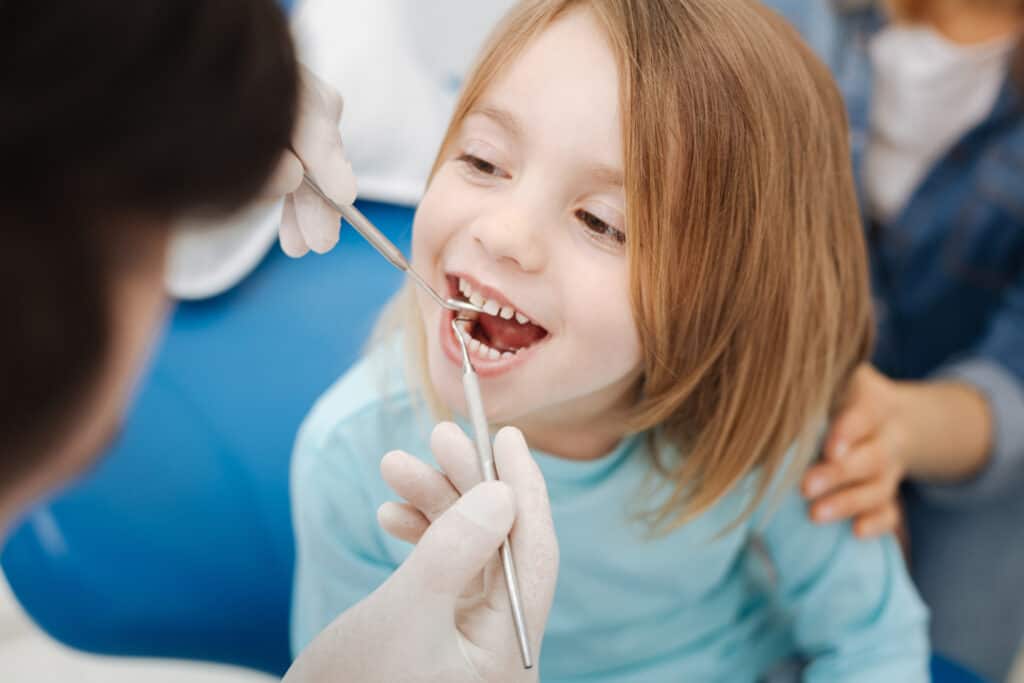Taking your child to the dentist doesn’t have to be stressful. In fact, with the right preparation and attitude, it can be a positive experience that sets them up for a lifetime of good oral health. Many parents worry about how their child will handle a dental appointment, but there are plenty of ways to make the experience easier and even enjoyable. So, how can you ensure your child feels at ease when visiting the dentist? Here’s everything you need to know.
Start With a Positive Foundation
Kids pick up on your feelings, so your attitude can make a big difference. If you’re anxious about the appointment, they’ll likely feel it too. Instead, focus on being calm, upbeat, and encouraging. Speak about the dentist in a positive light, using words that make it sound like an exciting part of growing up. For instance, you could tell them, “The dentist helps keep your teeth strong and healthy!” Avoid any language that might make them nervous, like talking about pain or needles, even if it’s in a reassuring context. Kids remember the negative words more than the positive ones.
Choose the Right Dentist
Finding a specialist childrens dentist in London is key. Look for one that specialises in treating children or has experience with young patients. Many dentists take extra steps to create a welcoming and playful environment, complete with colourful walls, toys, or even TV screens to distract kids during treatment. These small touches can make a world of difference. If possible, schedule a visit to meet the dentist and staff before the actual appointment. This lets your child get familiar with the environment without the pressure of a check-up. It’s much easier for them to feel comfortable when they know what to expect.
Make It Part of Their Routine
Kids thrive on routines, and that includes dental care. The earlier you start regular dentist visits, the more normal it will feel to them. Ideally, children should visit the dentist by their first birthday or within six months of getting their first tooth. Regular check-ups every six months help them see the dentist as a normal part of life rather than a rare, intimidating event. Pair this with a daily oral care routine at home that feels fun and consistent. Let them choose their own toothbrush and toothpaste (as long as they’re age-appropriate) to give them a sense of control.
Prepare Them Ahead of Time
Talking to your child about the dentist before their appointment is essential, but how you do it matters. Use simple, friendly explanations about what will happen. You could say, “The dentist is going to count your teeth and make sure they’re clean and strong.” Role-playing at home can also help. Pretend to be the dentist and let your child be the patient, or switch roles and let them pretend to check your teeth. This can make the actual appointment feel less intimidating because they already know what to expect. Books and videos about visiting the dentist are also great tools for normalising the experience.
Timing Is Everything
When booking your child’s appointment, consider the timing carefully. Choose a time when they’re likely to be well-rested and in a good mood. Early morning appointments or times after a nap often work best for younger children, as they’re less likely to be tired or irritable. Avoid scheduling around meals to prevent hunger-related crankiness. If your child is feeling their best, they’re more likely to handle the appointment well.
Keep It Short and Sweet
For young children, shorter appointments are usually better. Their attention spans are limited, and sitting still for too long can be challenging. Let your dentist know if it’s their first visit or if they’re nervous. Many dentists will tailor the appointment to your child’s comfort level, focusing on building trust rather than trying to accomplish too much at once. A quick check-up that ends on a positive note is far better than a long session that leaves them overwhelmed.
Bring Comfort Items
Familiar objects can help ease nerves. Encourage your child to bring a favourite toy, blanket, or stuffed animal to the appointment. These items act as a source of comfort and can make the environment feel less unfamiliar. Some parents even bring headphones with their child’s favourite music or an audiobook to create a calming distraction during the visit.
Praise and Reward
Kids respond well to positive reinforcement. After the appointment, celebrate their bravery with lots of praise. You might say, “You did such a great job sitting still and letting the dentist count your teeth!” This helps build their confidence for future visits. You can also create a small reward system, like letting them pick a sticker or a little treat (non-sugary, of course) after the appointment. Knowing there’s something fun waiting at the end can motivate them to get through the visit happily.
Stay Consistent
If your child has a bad experience, it’s important not to let it discourage you from continuing regular dental visits. Take time to talk about what happened and reassure them that future appointments will be better. The key is to stay consistent and keep the routine going. Skipping appointments due to fear or discomfort can make it harder to get them back into the habit later on.
Set Them Up for Success
The earlier you make dental care a normal and positive part of your child’s life, the better their long-term relationship with oral health will be. By choosing the right dentist, preparing them ahead of time, and creating a supportive environment, you’re setting your child up for stress-free appointments. Every small step you take now helps them build trust and confidence that will last into adulthood.





